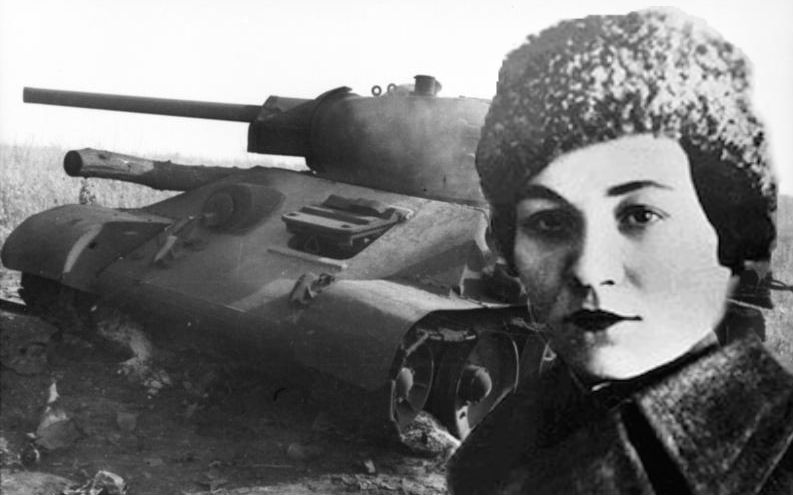World War II devastated families and separated countless lovers. In some cases, the ones who lost their loved ones hurried to avenge them. Mariya Oktyabrskaya was one such person. As news of her husband having died on the Eastern Front reached her, she decided to sell everything she owned and invest in the production of a T-34 tank. Then she went a step further and applied for training to receive her tank driving license. The following step was vengeance like no other.
But let’s get back to the beginning. Mariya Oktyabrskaya was born on the Crimean Peninsula to a poor Ukrainian family which nurtured 10 children. Before the war, she worked in a cannery and was at one point a telephone operator.
She met her husband, the future Red Army officer, in 1925. The two married that same year. Mariya became very interested in her husband’s line of work and joined the Military Wives Council and acquired training as an army nurse. Soon after, she learned how to use weapons and drive, which was very uncommon for women at the time.
When asked about her unusual interest, she reportedly replied: “Marry a serviceman, and you serve in the army: an officer’s wife is not only a proud woman but also responsible title.”
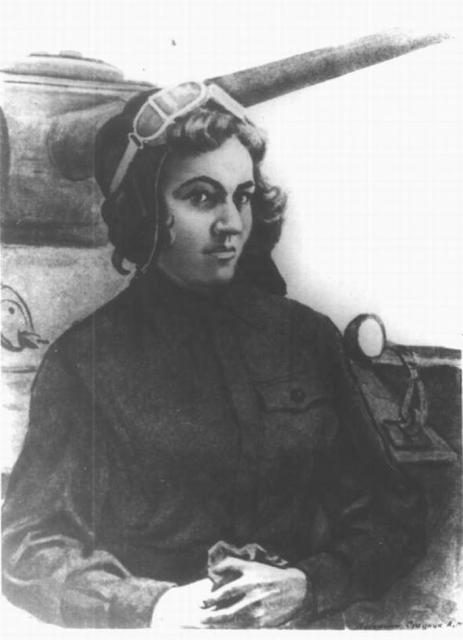
As the war closed in on the Soviet Union in 1941, she was evacuated to Siberia, where she spent the next two years. It took a long time for the news of her husband’s death to reach her, but as soon as she got the letter, she knew what to do. Oktaybrskaya was so enraged by the death of her beloved husband that she wrote a letter to Stalin directly:
“My husband was killed in action defending the motherland. I want revenge on the fascist dogs for his death and for the death of Soviet people tortured by the fascist barbarians. For this purpose, I’ve deposited all my personal savings–50,000 rubles–to the National Bank in order to build a tank. I kindly ask to name the tank ‘Fighting Girlfriend’ and to send me to the front line as a driver of the said tank.”
Stalin felt he had no choice but to accept. The State Defense Committee advised him that the move could have a positive effect as a morale booster on both the desperate population and the troops. It wasn’t uncommon for citizens to donate money for war production in the Soviet Union, but usually, those making the donations were men.
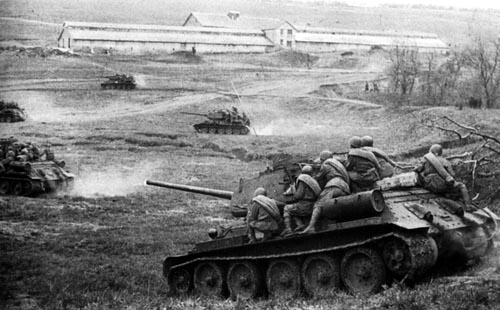
Nevertheless, in dire times every bit of help is welcome, and so Mariya received five months of training in order to master the skills of operating the T-34.
This too was uncommon―during the Great Patriotic War, as WWII was dubbed in the U.S.S.R., tank crews received shorter training, as they were needed almost immediately on the front. In Stalingrad, tanks would enter combat unpainted.
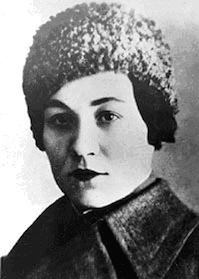
The five-month training was also part of the propaganda effort―the Soviet government didn’t just want to send Oktyabrskaya to battle. They wanted to make sure that she would be effective.
After training, the 38-year-old Oktobrskaya got transferred to the 26th Guards Tank Brigade in September 1943 and soon participated in the Second Battle of Smolensk. Even though other tank crews looked at her as some publicity stunt, she got the chance to prove them wrong.
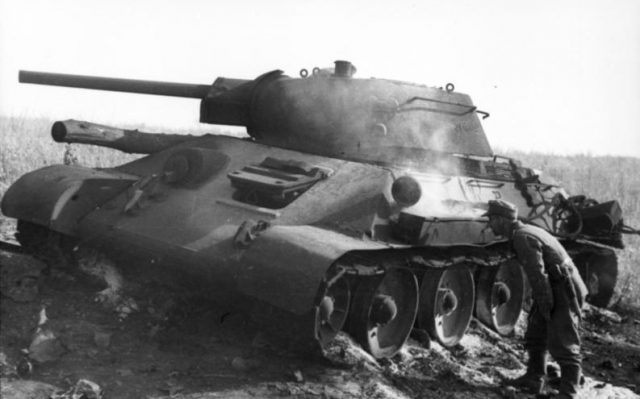
During her first battle, Oktobskaya showed some extraordinary maneuvering skills and assisted in neutralizing machine gun nests and artillery positions, while under heavy fire. Her tank, “The Fighting Girlfriend,” pushed through enemy lines, but was badly damaged.
Under intense fire, she rushed out of the turret to repair her tank. Her fellow crewmen provided covering fire while she fixed the tank and jumped back in. Everyone in the unit was amazed, and she was promoted to the rank of Sargent.
A similar situation happened a month later, when “The Fighting Girlfriend” was raining fire around the town of Novoye Selo in the region of Vitebsk. Her track was hit and the tank was immobilized. Sargent Oktobrskaya rushed out and, with the help of another crew-member, managed to put the T-34 back in running condition.
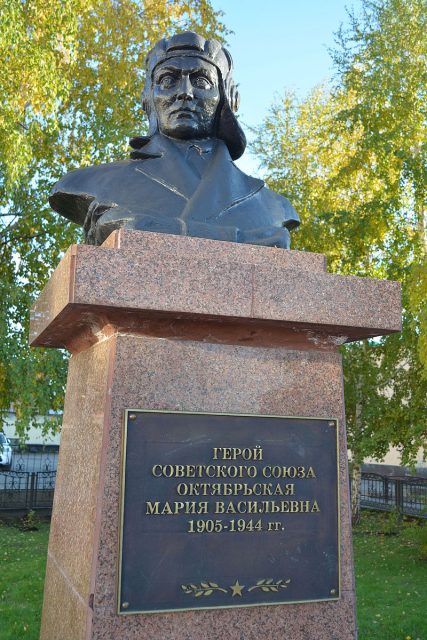
CC BY-SA 4.0
But just two months later, her courageous tactic would prove to be the last. As the tank once again suffered damage after destroying entrenched positions and an enemy self-propelled gun, Oktobrskaya tried to pull the trick once again. She managed to fix the damaged track but was hit in the head by shell fragments and lost consciousness during her return.
Mariya Oktobrskaya was transferred to a military field hospital near Kiev, where she spent two months in a coma before passing away on March 15, 1944.
Her actions did not go unrewarded, nor were they in vain. She was declared a Hero of the Soviet Union posthumously, as her bravery inspired thousands of women to join the fight and make their contributions.
